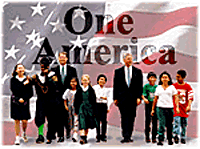 |
 |
First held in 1988 to address the resurgence of racial conflicts in institutions of higher education, the National Conference on Race and Ethnicity in American Higher Education (NCORE), has evolved into a vital resource for higher education institutions across the country. The annual conference provides a national multicultural forum for Blacks, Native Americans, Asian and Pacific Islanders, and Hispanics. Founded and implemented by the Southwest Center for Human Relations Studies, which has promoted cooperation and understanding among people of different racial, ethnic, religious and economic backgrounds since 1961, NCORE promotes the inclusion of traditionally under-represented groups in higher education.
NCORE annually provides five days of education and training for higher education administrators, faculty, professional staff, and student leaders. Trainings address topics relating to campus inclusion, climate and racial relations, and the issues and practices affecting educational access and success by members of culturally diverse, and traditionally under-represented populations. Participants at NCORE acquire important factual information about history, problems, issues and concerns of various racial and ethnic groups. Participants also learn successful approaches and best practices to resolve conflicts and develop cross-cultural awareness and skills. NCORE participants also engage in case studies, role playing, simulations, and cross-cultural dialogues that foster cross-cultural knowledge and cooperation. NCORE sessions address such topics as current legal and policy debates, multicultural technology in teaching, curricular inclusion and culturally responsive teaching, diversity planning and assessment, and respectful college environments. NCORE Institutes can last from one to five days and addresses more complex issues, including curriculum revisions, dialogue between different ethnic and racial groups, and racial identity development.
Outcomes and Significant Accomplishments NCORE has served approximately 11,000 administrators, faculty, professional staff and student leaders from higher education institutions in all 50 states. Longitudinal assessments indicate both new and long-term attendees consistently rate NCORE as extremely beneficial for learning useful approaches and acquiring valuable tools and skills that can be applied on campus and in personal and professional development. NCORE partnered with other organizations to create several networks. These networks include a professional association, which publishes an annual resource guide based on the conference training sessions, and NCORE Scholars, an honors qualified undergraduates and graduates program who receive a partial NCORE scholarships.
|
![]()
To comment on this service,
send feedback to the Web Development Team.
![[White House icon]](/New/images/home_pin.gif)
![[Help Desk icon]](/New/images/help_pin.gif)